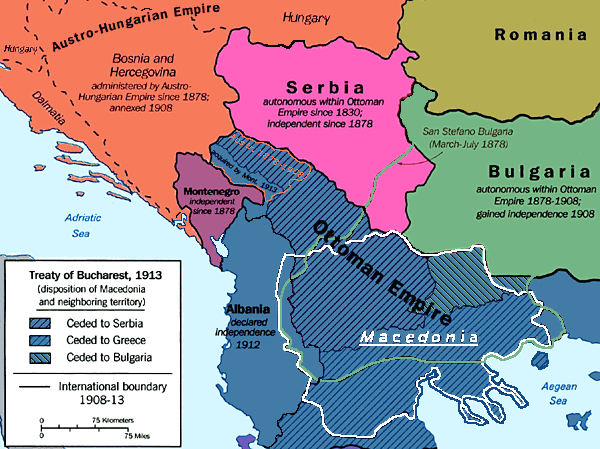User:Antidiskriminator/Sandbox3
Zahtevi za karte
[edit]<!-- nothing or {{resolved}} or {{Stale|user}} --> <center><gallery> File:Europe-Macedonia.svg|Similar to the other maps that show location of the state, like this map of the Republic of Macedonia, but with the territory that corresponds to the description below File:Deutschland topo.jpg| Similar to the other topographic maps that show topography of the various countries, like this map of Germany, but with territory that corresponds to the description below File:ETCETCETC.EXT|Don't request too many at once, though </gallery></center> '''Article(s):''' [[Republic of Central Albania]] '''Request:''' Please create a new map that would show the territory of the Republic of Central Albania as described in the article (with referenced source (The territory of the state was bounded by the river Mat in the North and the Shkumbin in the South). ~~~~ '''Graphist opinion(s):''' <!-- This area is for wikigraphists: {{I take|name}}: when you accept the request ; {{Done}}: when the request is done. -->
Razno
[edit]The Albanian language was the last one to be written in Europe. A part from few religious fragments such as the Gjon
Buzuku’s Meshar, a proper Albanian literature only started to spread during the Renaissance. This is a phenomenon of
which the Albanian Rilindas (the Renaissance intellectuals) were completely aware. See R.Elsie, History of Albanian
Literature, Columbia University Press, New York 1995. Ypi, Lea L. (November 2007), "The Albanian Renaissance in Political Thought: Between the Enlightenment and Romanticism" (PDF), East European Politics and Societies: And Cultures, 21 (4), East European Politics & Societies: 661–680, doi:10.1177/0888325407307259, S2CID 144718966, retrieved March 24, 2011 {{citation}}: |first2= missing |last2= (help); Cite has empty unknown parameter: |lay-date= (help); More than one of |author= and |last1= specified (help)CS1 maint: multiple names: authors list (link)
Elsie
[edit]On 29 July 1913, the ambassadors agreed to recognize Albanian autonomy, though initially under the continued suzerainty of the Sultan.
<ref name="El74-76">{{cite book|last=Elsie|first=Robert |title=Albanian literature: a short history |url=http://books.google.com/books?id=ox3Wx1Nl_2MC&pg=PA76&dq=pandeli+sotiri&cd=6#v=onepage&q=pandeli%20sotiri&f=false|date=January 2006|publisher=I. B.Tauris & Company, Limited|isbn=1845110315|quote=On 29 July 1913, the ambassadors agreed to recognize Albanian autonomy, though initially under the continued suzerainty of the Sultan.|page=106}}</ref>
"In 1912 --officially in 1913-- Albania became independent from the Ottoman Empire, and the country was placed under the care of an International Control Commission. The self-proclaimed provisional government of Ismail Qemal in Vlorë did not receive the general approval of the public and different forces from within the country (e.g. by Esad Pacha Toptani) contested the provisional government's status (Swire, 1929: 183-184). " http://www.greekhelsinki.gr/pdf/cedime-se-albania-catholics.doc

